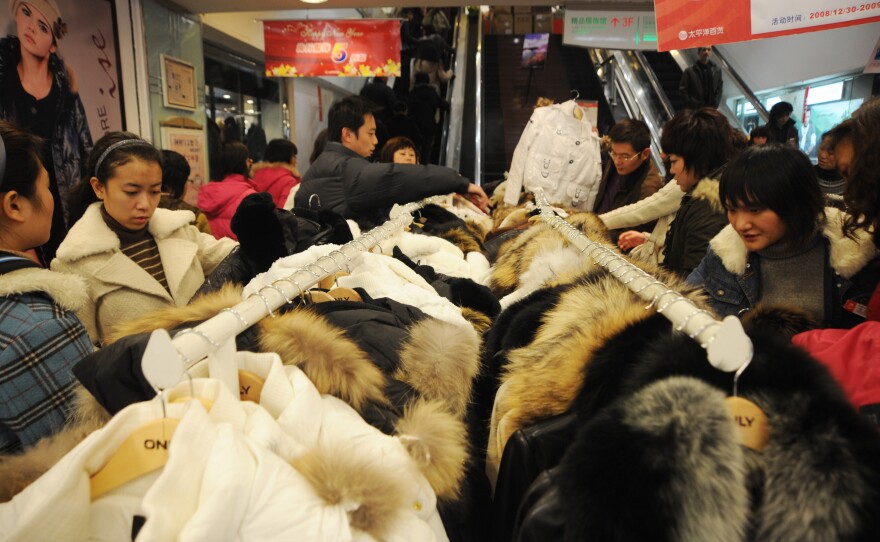President Obama's decision not to meet with the Dalai Lama is a reminder of China's growing influence with Washington. Longtime China watchers also say it's a sign of how economic and other interests have come to trump human rights.
China's influence with the United States has been increasing throughout this decade, but this year it gained a lot of ground. The United States sparked a global recession, and China, thanks in part to huge government stimulus spending, is helping to lead the way out.
Nicholas Lardy, a senior fellow at the Peterson Institute for International Economics, says the U.S. Is reluctant to irritate China these days.
"I think in the midst of an economic crisis, the administration is kind of bending over backwards" to ensure cooperation on big issues — including boosting the world economy, addressing climate change and dealing with North Korea, Lardy said.
He said postponing the direct visit between President Obama and the Dalai Lama is helping to meet those ends.
James Mann, with the Johns Hopkins School of Advanced International Studies, said when President Nixon went to China in 1972, the trip had nothing to do with economics.
The author of About Face, a history of China-U.S. relations, said Nixon's goal was to counter the influence of the Soviet Union. Human rights didn't become an issue until 1989 when the Communist party unleashed tanks on student demonstrators.
"There were a couple of years after the Tiananmen crackdown when human rights were a more significant element of American policy, but they didn't last long," Mann said.
A key reason is because Chinese leaders began to fully embrace capitalist-style reforms in 1992, allowing foreign investment and trade between the U.S. and China to skyrocket.
China used the money it gained from a giant trade surplus to buy U.S. debt, and — in recent years — become America's banker.
"The result of that has been enormous economic leverage over the United States," Mann said, adding that the U.S. still has the larger economy and should not fear raising concerns the the Chinese.
Mary Beth Markey, with the human rights group International Campaign for Tibet, said pressing the campaign's agenda became harder as China joined the world economy.
Before 2001, Congress had to vote on trade relations with China each year. Markey and others used the vote to highlight China's human rights record and force Congress, in essence, to vote on it.
But when China joined the World Trade Organization, that forum disappeared.
"When that annual vote went away, Congress need(ed) not pay as much attention," she said, adding that the leverage of human rights advocates was diminished by the change. "In the end the decisions are made by a very small group in the White House, I think."





